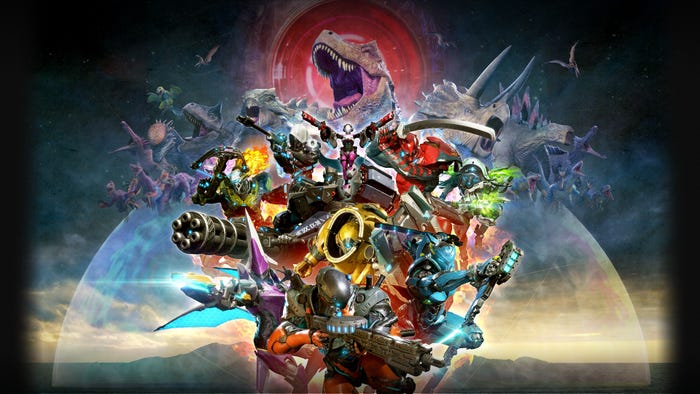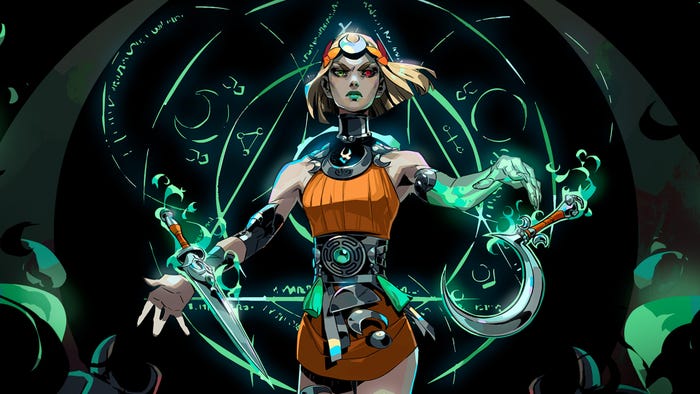Blogged Out: 'Party Dragons'
In his latest 'Blogged Out' column, veteran UK writer Jim Rossignol takes a look at the world of developer blogging, with thoughts on what Dragon Quest's move to DS really means, and plans for partying AI.

Welcome to 'Blogged Out', the news report that looks at the world of developer blogging and the conversations being had with the community at large. This week: The Party, Roman ballgames and Dragon Quest. Interactive Drama Andrew Stern, he of Façade fame, has posted on Grand Text Auto blog about his new project, The Party. It makes for some interesting reading. The post goes in depth into the ideas that underlie Stern and Mateas’ understanding of what interactive drama should entail, and how to achieve it. “Although Façade is comprised of 2500+ behaviors employing 5 total hours of voice-recorded dialog snippets, it didn’t add up to enough beats to achieve a satisfying richness. This was primarily because of how long beat behaviors took to author — not a function of the nature of beats per se, or how the architecture as a whole is designed. Of course we intended to create much more content for Façade, but we got bogged down on how long it took to make good beats, and had to cut many beats we hoped to make. “The solution for The Party and future projects is three-fold. One, create authoring tools to speed up the authoring of beats and their behaviors; we’re doing that now. Two, build as much of the experience as we can in a simplistic text-bubble version, requiring all of the AI and dialog to be implemented but almost none of the animation — roughly equivalent to writing the screenplay for a movie before it’s shot/animated. This should allow for more rapid authoring. Three, put more people on the team than just me and Michael!” Stern’s solution to the problems outlined by Façade is to create a large number of pieces of content with which to make up the behaviours. But is that how the problem should be tackled, or is this exactly the kind of place where generative approaches are required to create more from a few simple systems? Trigon 3D Adam MacDonald’s Tide’s Horizon blog is consistently interesting, and one of his recent posts really caught my imagination. He wonders how useful research into ancient games, such as Roman board games and sports, might be to modern game developers. I, for one, would love to see something like Trigon included as a sub-game in a period piece, or perhaps even filtered into one of our endless fantasy adventures. Handheld Dragon Okay, so Wired’s Chris Kohler doesn’t exactly constitute ‘developer blogging’ but nevertheless I wanted to highlight this discussion of the importance of the Dragon Quest games to Japanese gamers – a game series which is now the biggest franchise in Japan – and its release on Nintendo DS. “If we take as gospel the fact that Dragon Quest goes to the system with the highest userbase, it makes sense. DS is on track to outsell every other game console in the history of Japan. “Not to mention the fact that the DS, both as a product and in its branding and image, is an embodiment of the feeling that the DQ series seeks to embrace. DQ is played by hardcore gamer nerds, sure, but it's also for little kids and moms and dads and retirees. It's a simple, accessible game for everybody. It's Japan's equivalent of Disney movies.” Dragon Quest is the biggest PS2 title ever, which I think means that it dwarfs the popularity of any Western-centric games. Nevertheless you could see it as being analogous to Half-Life, a game that Asia has pretty much shrugged at. I love that two communities in the world can look at each other’s favourite games and think “what is all the fuss about?” It’s perhaps even more interesting that a company like Square doesn’t allow itself to get pushed around by the incoming platforms and simply picks the most successful one once the user-base has been defined. [Jim Rossignol is a freelance journalist based in the UK – his game journalism has appeared in PC Gamer UK, Edge and The London Times.]
Read more about:
2006About the Author(s)
You May Also Like













